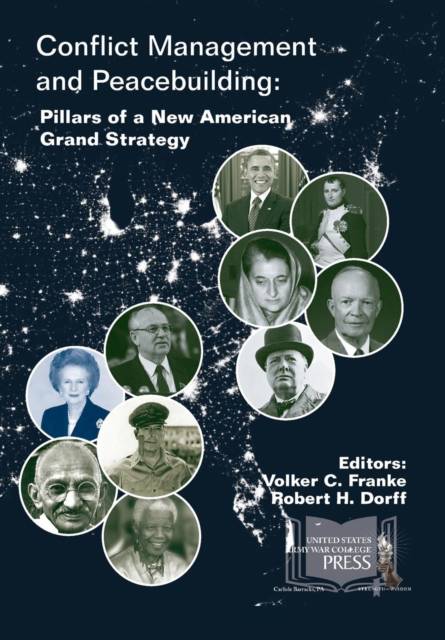
- Afhalen na 1 uur in een winkel met voorraad
- Gratis thuislevering in België vanaf € 30
- Ruim aanbod met 7 miljoen producten
- Afhalen na 1 uur in een winkel met voorraad
- Gratis thuislevering in België vanaf € 30
- Ruim aanbod met 7 miljoen producten
Zoeken
Conflict Management and Peacebuilding
Pillars of a New American Grand Strategy
Volker C Franke, Robert H Dorf, Strategic Studies Institute
Paperback | Engels
€ 27,95
+ 55 punten
Uitvoering
Omschrijving
The authors examine the utility of the U.S. Government's whole-of-government (WoG) approach for responding to the challenging security demands of operations in Iraq and Afghanistan. They specifically discuss the strategic objectives of interagency cooperation particularly in the areas of peacebuilding and conflict management. Discussions range from the conceptual to the practical, with a focus on the challenges and desirability of interagency cooperation in international interventions. The book shares experiences and expertise on the need for and the future of an American grand strategy in an era characterized by increasingly complex security challenges and shrinking budgets. All authors agree that taking the status quo for granted is a major obstacle to developing a successful grand strategy and that government, military, international and nongovernmental organizations, and the private sector are all called upon to contribute their best talents and efforts to joint global peace and security activities. Included are viewpoints from academia, the military, government agencies, nongovernmental organizations, and industry. Despite the broad range of viewpoints, a number of overarching themes and tentative agreements emerged.
Specificaties
Betrokkenen
- Auteur(s):
- Uitgeverij:
Inhoud
- Aantal bladzijden:
- 420
- Taal:
- Engels
Eigenschappen
- Productcode (EAN):
- 9781782665373
- Verschijningsdatum:
- 8/01/2014
- Uitvoering:
- Paperback
- Formaat:
- Trade paperback (VS)
- Afmetingen:
- 170 mm x 244 mm
- Gewicht:
- 666 g

Alleen bij Standaard Boekhandel
+ 55 punten op je klantenkaart van Standaard Boekhandel
Beoordelingen
We publiceren alleen reviews die voldoen aan de voorwaarden voor reviews. Bekijk onze voorwaarden voor reviews.











